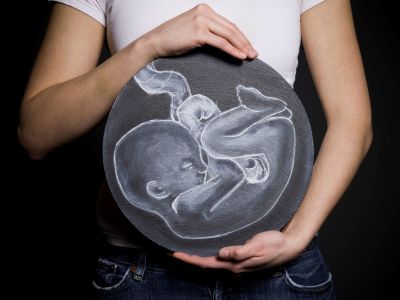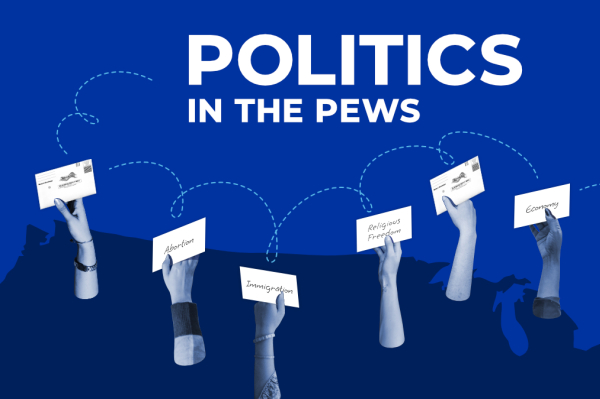Population decline, artificial wombs and brain-dead surrogate mothers

Anne and Paul Ehrlich’s prediction in the late 1960s of the global overpopulation bomb has certainly fizzled out like a lot of doomsday predictions of the last few decades. Yet, human reproductive technology continues to make advancements. With those advancements come bioethical concerns that give pause to many people, regardless of their worldview. Christians who watch these trends are especially alarmed by these advancements and the implications the technologies have for humanity’s future.
Except where immigration has offset the trend, population decline has already started in the reproductively stunted cultures of North America (1.6 births per woman), Europe (1.53 birth per woman), and East Asia (1.2 births per woman). It is generally accepted that 2.1 children per woman are needed to maintain a population, i.e., the so-called “replacement rate.” The Population Reference Bureau and others track these trends. It is known that China has lost nearly 1 million people in 2022. The trend is expected to accelerate in the years ahead. The German population, like the American population, is only increasing because of a flood of controversial immigrants. In both places, the working-age population is aging. These trends are compounded in many places by modern confusion regarding gender identity and who can have babies. In addition, there are certain radical feminists and others who see pregnancy as a disease. For example, Gilbert Meilaender in his May 1979 article in the Linacre Quarterly quotes Judith Jarvis Thomson’s 1971 defense of abortion that sees the fetus as a parasite.
What is a culture to do if it wants to survive but is unwilling to address the cultural factors that have caused the population decline?
Societies that constitutionalize the destruction of the pre-born, coerce women to only have one child, redefine marriage to something beyond a heterosexual union, legalize sperm banks, allow sacrificial human embryonic stem cell research, and condemn millions of human embryos to cryo-storage, are societies that can sanction any outlandish reproductive policy. There are many such societies in the East and West. However, even for these societies, extinction is not typically considered a viable option.
As these societies continue to follow the secularizing postmodern neopagan and atheistic paths they are on, where will they look for salvation? Unless there is massive religious conversion to change the message, I suspect these societies will embrace the vision of the 1933 Humanist Manifesto that says, “there is no God to save us, we must save ourselves.” And why not? If the God of salvation is out of the picture, technology looks like it is full of promise. For example, life expectancy in the United States went from 47.5 years in 1900 to nearly 77 years in 2000 before it started to drop.
Many strong artificial intelligence (AI) proponents see the uploading of consciousness to the perpetual cyborg upgrade as the way to beat death. Strong AI proponent Ray Kurzweil places his hope in this. And renowned theoretical physicist and cosmologist Lawrence Krauss sees moving beyond humanity as, “not a good thing or a bad thing. It’s just what is going to happen.” Although others, like the late physicist Stephen Hawking and Elon Musk, see developments in strong AI as serious threats to humanity.
Societies will probably be divided by opinions on how to best move forward. However, developments in reproductive technologies are likely to have their day. A debate article last year in The Atlantic, "Liberation of Folly? Your Takes on Artificial Wombs," is sobering. The article begins with the quote, “If you squint a little, artificial wombs look like a solution that can satisfy everyone ...” The article quotes a woman who claims “that women would never be equal until everyone had access to artificial wombs and the ability to have children with their partners, regardless of gender … imagining a world where no one has to be defined by their reproductive role.” Given the gender identity issues of the day, it is likely that this opinion is more widespread than some might expect.
Technologies such as artificial wombs, like most technologies, are not inherently evil until they are put into the hands of the ethically unscrupulous. One can envision the use of technology to save mothers and unborn babies at risk of death or serious harm. However, for those who see their population slipping away, who are already predisposed to devalue the nuclear family as the central societal unit, salvation will be in sight. Their central authorities can claim the authority to produce and raise children.
The Catalyst, a feminist journal of theory and technoscience, proclaimed that ectogenesis (the technical term for artificial wombs) is for feminists. The article mentioned that by 2017 gestational technology had advanced to the point of taking a 60% naturally gestated lamb to completed development of birth. The MIT Technology Review reported the accomplishment of Israel’s Weizmann Institute of Science. By 2021, artificial womb technology had advanced to the point of growing mouse embryos from conception to the 11-to-12-day stage, about half their gestational length. They acknowledge that this sets the stage for other species and that humans could be next.
Those of us squarely in the pro-life camp need to resist the use of experimental trials that involve human embryos and fetuses, many of which would not survive the technologically advancing experiments. In addition, serious ethical concerns exist regarding the use of successfully developed artificial wombs, which are likely to be only a few years away.
Other possibilities for generating children have crossed people’s minds. For example, in the November 18, 2022, issue of the Journal of Theoretical Medicine and Bioethics, Anna Smajdor, of the University of Oslo, suggests that we consider using brain-dead surrogate mothers to gestate babies. I am sure many families would consider technologies that would sustain a trauma-induced brain-dead pregnant woman to remain on life support to give the unborn child a chance to fully develop. Yet, to sustain a brain-dead woman on life support solely for the reason of becoming a surrogate mother seems to be a new depth of inhumanity.
Who is most likely to use a fully developed gestational technology to produce human babies? Communist China would be an obvious candidate. As their aspirations for world dominance continue to drive their ambitions, the communist Chinese are confronted with a rapidly declining population that is projected to be reduced by half by the end of this century. That population will be increasingly aged with a drastically reduced working-age population to support them. Considering that the Chinese have a history of human rights abuses, such as an aggressively enforced one-child policy (lifted in 2016), keeping criminal organ donors on life support to ensure future organ harvesting, and the world’s first GMO children, they seem to have everything in place philosophically to have gestational factories cranking out babies. Yet the continually secularizing West seems to be on a similar trajectory. Notice that the comments above are all from Western sources.
Right-thinking Christians will continue to support the heterosexual nuclear family as the only biblically sanctioned way to produce children. Yet, we find ourselves in a cultural climate that will inevitably split Christians on the best way forward. Sadly, we do not have the best record of achieving ethical solidarity. However, Christianity anchored in biblical truth and categories of the biblically informed created order will always have an opportunity to be salt and light in a confused world. Being aware of the trends and proactively developing critically Christian responses is a necessary start to meeting the challenge.
Jan Dudt is a professor of biology at Grove City College and fellow for medical ethics with the Institute for Faith & Freedom. He teaches as part of college’s required core course Studies in Science, Faith and Technology wherein students, among other things, study all the major origins theories and are asked to measure them in the light of biblical authority.





















